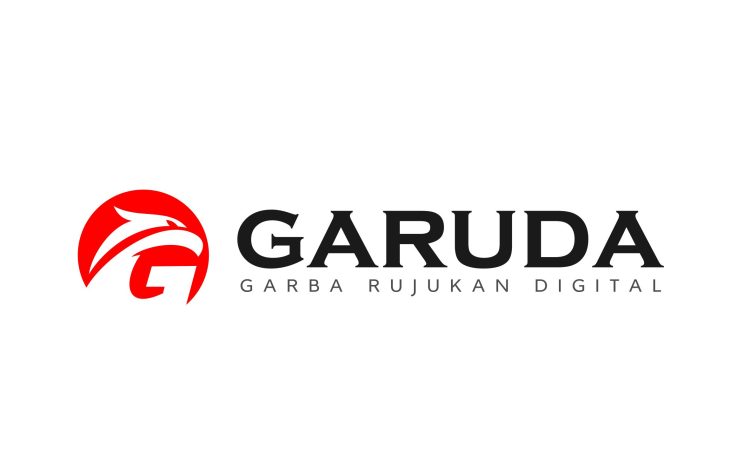COMMUNITY-BASED WASTE MANAGEMENT IN STRENGTHENING THE INSTITUTIONAL CAPACITY OF WOMEN'S COMMUNITY EMPOWERMENT IN RIBANG VILLAGE, MUARA UYA DISTRICT, TABALONG REGENCY
Keywords:
Waste Management, Women's Empowerment, Participation, Capacity, EnvironmentAbstract
Community-based waste management is an effective strategy for addressing environmental issues while strengthening the capacity of community empowerment. This study aims to examine the role of community women in waste management and its impact on increasing community awareness, participation, and independence in protecting the environment. The method used is a qualitative approach with data collection techniques through observation, interviews, and documentation in Ribang village, which has successfully implemented an independent waste management system. The results show that the active participation of community women in activities such as waste banks, household waste sorting, creating crafts from used waste, and composting have a positive impact on behavioral change and creating new economic value. In addition, support from government agencies through the Environmental Agency and CSR programs from PT. ADARO have also strengthened local institutional capacity and expanded the reach of empowerment. Waste management is not only a solution to environmental problems, but also a strategic tool in building a more caring, empowered, and independent community. Overall, this activity builds a strong institutional foundation and social capital for the sustainability of waste bank management at the village level, and opens up space for replication of similar models in other areas.
References
Alam, Y., Harliana, H., Haryuni, N., & Oktaviani, R. T. (2024). Pengelolaan Limbah Rumah Tangga Berbasis Komunitas untuk Produksi Pupuk Kompos Organik. Welfare: Jurnal Pengabdian Masyarakat, 2(4), 748–753. https://doi.org/10.30762/welfare.v2i4.1964
Arifin, S., Subagja, G., Fahesa, V., & Ridwan, M. (2025). Pemberdayaan Ekonomi Perempuan dan Perlindungan Hak-Hak Kepemilikan Investasi di Negara Muslim. Jurnal Penelitian Ilmiah Multidisipliner, 2(01), 1316-1327. https://ojs.ruangpublikasi.com/index.php/jpim/article/view/449
Asyari, N. (2025). Strategi Capacity Building BUMDes dengan Pendekatan Model McKinsey di Desa Alastengah, Paiton, Kabupaten Probolinggo. Journal of Global Economic Trends, 1(1). https://ejournal.unuja.ac.id/index.php/jget/article/view/12154
Eko, S. (2016). Penguatan Kelembagaan Lokal dalam Pembangunan Partisipatif. Yogyakarta: Gadjah Mada University Press.
Fakih, M. (2007). Analisis Gender dan Transformasi Sosial. Yogyakarta: Pustaka Pelajar.
Hidayah, A. A., Astuti, R. S., & Kismartini, K. (2024). Kapasitas Kelembagaan dalam Pengelolaan Sampah di Kabupaten Pemalang. Journal of Public Policy and Management Review, 13(3), 655–671. https://doi.org/10.14710/jppmr.v13i3.45298
Isbandi, R. (2010). Pemberdayaan Masyarakat: Dari Model Linier ke Partisipatoris dalam Pembangunan Kesehatan. Jakarta: FKM UI Press.
Kabeer, N. (1999). Resources, Agency, Achievements: Reflections on the Measurement of Women’s Empowerment. Development and Change, 30(3), 435-464. https://doi.org/10.1111/1467-7660.00125
Kementerian Lingkungan Hidup dan Kehutanan Republik Indonesia. (n.d.). Panduan Pelaksanaan Bank Sampah. Jakarta: Direktorat Jenderal
Kenarni, N. R. (2022). Pemanfaatan Minyak Jelantah dalam Pembuatan Lilin Aromaterapi. Jurnal Bina Desa, 4(3), 343–349. https://doi.org/10.61722/japm.v2i5.2372
Knowles, M. S. (1980). The Modern Practice of Adult Education: From Pedagogy to Andragogy. New York: Cambridge Books.
Lamidi, L., Kurnianingsih, F., Adhayanto, O., Arianto, B., & Nazaki, N. (2024). Evaluasi dan Monitoring Pendekatan PESTEL dalam Strategi Pemberdayaan Masyarakat terhadap Ekowisata Mangrove di Desa Kelumu. Khidmat: Journal of Community Service, 1(2), 89-102. https://ojs.umrah.ac.id/index.php/khidmat/article/view/7024
Prabantarikso, M. (2024). Tinjauan Sosio-Legal Atas Kontrak: Kajian Tentang Keterikatan Sosial (Social Embeddedness) Dan Keterikatan Institusional (Institutional Embeddedness) Pada Penegakan Kontrak. Mimbar Hukum, 36(2). https://doi.org/10.22146/mh.v36i2.17201
Rahma, S. (2025). Penerapan Green Economy dalam Upaya Pemberdayaan Ekonomi Masyarakat Berbasis Bank Sampah (Studi Kasus pada Bank Sampah di Kota Jambi). Ekonomis: Journal of Economics and Business, 9(1), 326-332. http://dx.doi.org/10.33087/ekonomis.v9i1.2396
Saputra, D. (2025). Pemberdayaan Masyarakat Dalam Kebijakan Pemerintah Berbasis Komunitas Untuk Pengelolaan Sampah Rumah Tangga Kota Parepare. Jurnal Pengabdian Masyarakat (J-AbMas), 1(1), 23-35. https://doi.org/10.69623/j-abmas.v1i1.59
Wijaya, F. R., Lubis, F. A. R., Siregar, M. N. S., & Batubara, A. A. F. (2025). Sumber Data, Subjek Penelitian, dan Isu Terkait. Edukatif, 3(2), 271-276. https://ejournal.edutechjaya.com/index.php/edukatif/article/view/1567














